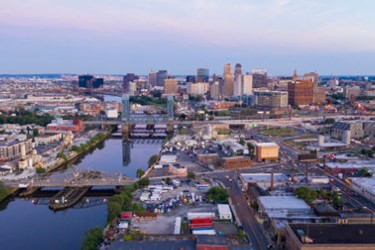EPA Determines Newark's Lead Filters Not Working; City Distributes Bottled Water


Late last week, the U.S. EPA sent a letter to officials in Newark, NJ, warning them that residents were exposed to dangerous levels of lead contamination in their drinking water and that the city’s efforts to mediate the crisis weren’t working. In response, the city is now distributing bottled water to households that are served by lead service lines.
The city’s struggles with lead contamination have been apparent for more than a year, with environmental groups calling attention to concerning water samples from 2017. In late 2018, the Natural Resources Defense Council was drawing similarities between the city’s problem and a similar crisis in Flint, MI. In January of this year, it called Newark’s lead levels “jaw-dropping.”
In response, the city has been providing point-of-use filters for residents. Now, the EPA is saying those are not effective.
“The U.S. Environmental Protection Agency issued its recommendation … in the wake of recent surveys that showed the water in two or three tested homes still contain high lead levels despite the use of filters,” according to NJ.com. “The letter told the state’s largest city that it was ‘essential’ to warn residents not to rely on filters.”
The EPA took filtered water samples from Newark homes earlier this month and found that several of them had lead levels exceeding the federal threshold of 15 parts per billion. It was not immediately clear if there is a functional issue with the filters provided by the city.
After lead contamination was first discovered in the city’s water system, officials identified aging lead infrastructure as the problem and apparently believed that corrosion control efforts had solved it.
“But Newark changed course after a study found that lead was leaching into the water because of ineffective corrosion treatment at the city’s Pequannock plant,” The New York Times reported. “Last year, lead levels in more than half the samples tested at homes served by the plant exceeded the 15 parts per billion standard.”
In response to the EPA letter, Mayor Ras Baraka and New Jersey Governor Phil Murphy issued a joint statement asking the federal government for help in resolving the crisis. They also indicated that the problem could be brought under control through corrosion control efforts at the Pequannock facility.
“Baraka and Murphy noted in their statement that ‘experts expect to see a reduction of lead levels by the end of this year after the corrosion control optimizes,’” according to The Hill.
To read more about how drinking water contaminant standards are applied to municipalities, visit Water Online’s Regulations And Legislation Solutions Center.
